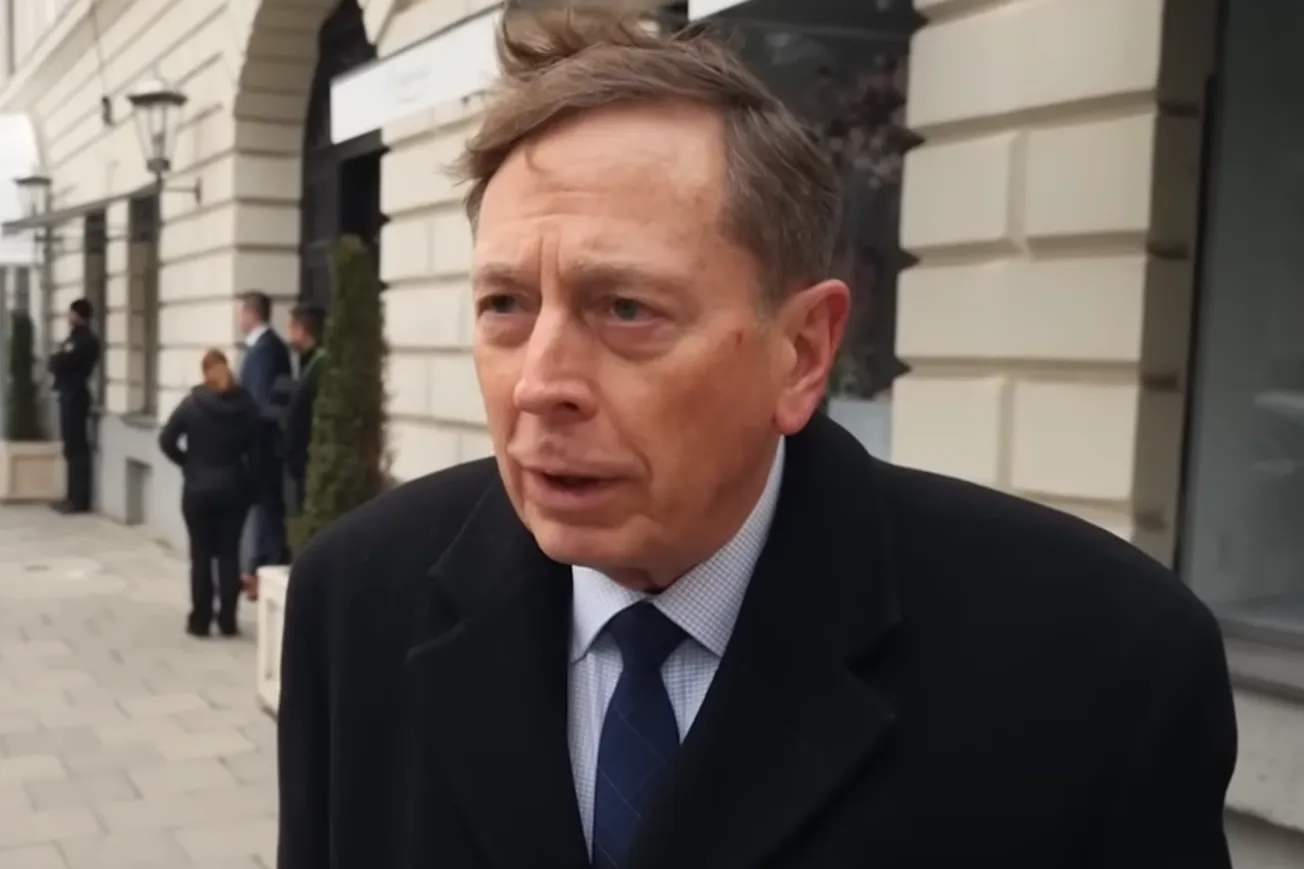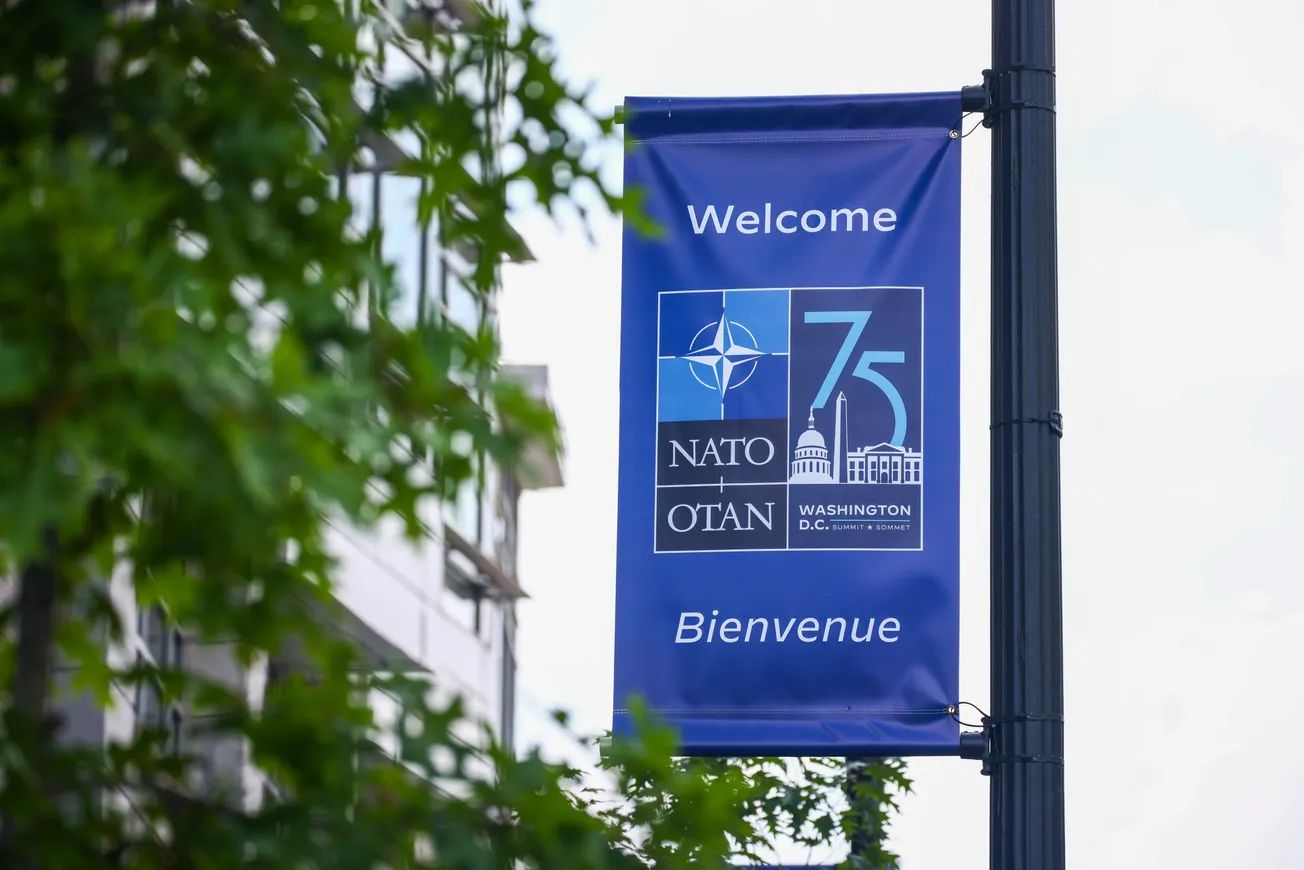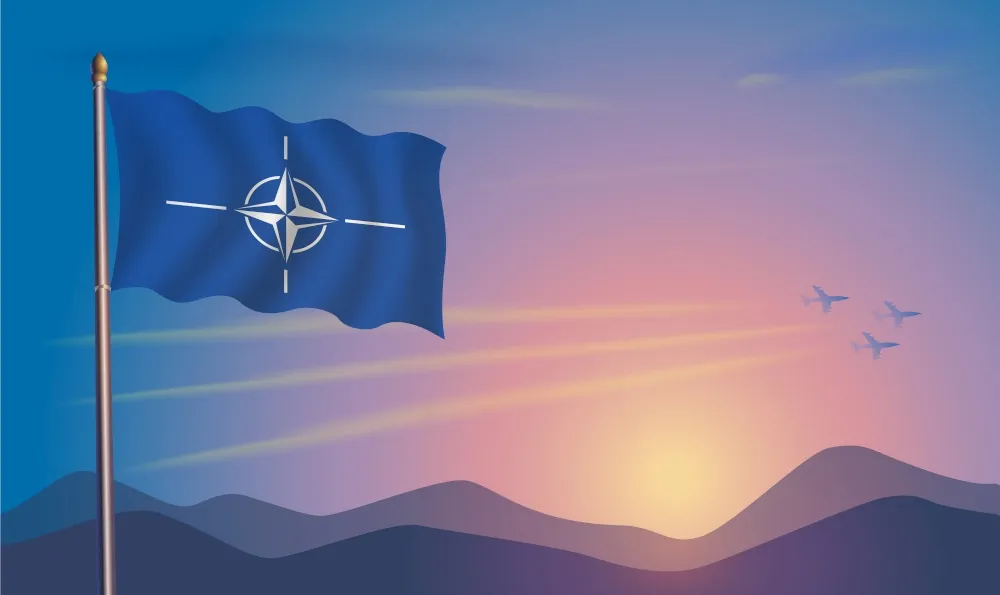In an interview with DW's Washington bureau chief Ines Pohl, US Army general (ret.) David Petraeus said that Ukraine should be provided with Western fighter bombers. "It's inevitable, yes. There's no other possible response given that we've run out of the MiGs that can be bought or transferred to Ukraine from Western countries that still have them in their arsenal from Cold War days."
Petraeus also talked about the role of China in the conflict and Xi Jinping's visit to Moscow: "Russia did not get the kind of commitment to provide weapons or any other real tangible assistance that would help them on the battlefield in Ukraine, which is, of course, what's most preoccupying Vladimir Putin's mind, given how miserably that war is going."
Here's the video of the interview:
Here’s the transcript:
INES POHL: The former head of the CIA and four-star General David Petraeus is a regular guest on DW News. Today we are going to talk about the current situation in Ukraine, the relationship between Russia and China, but also about TikTok and its possible influence in U.S. politics.
General Petraeus, thank you for making time for DW.
DAVID PETRAEUS: Good to be with you, Ines.
INES POHL: General Petraeus, China's President Xi Jinping, has been visiting Vladimir Putin for three days. What do you make of this?
DAVID PETRAEUS: Well, it certainly didn't result in the outcome, I don't think, that Vladimir Putin wanted. This is very much an unequal partnership. The declarations that they made, the commitments, and so forth are essentially for Russia to provide China with natural gas, crude oil, minerals, and agricultural products, all at reduced rates.
And Russia did not get the kind of commitment to provide weapons or any other real tangible assistance that would help them on the battlefield in Ukraine, which is, of course, what's most preoccupying Vladimir Putin's mind, given how miserably that war is going.
INES POHL: However, there are rumors that they have been already providing China has been already providing drones and arms, and other assistance. Is this true? Is there something true to it?
DAVID PETRAEUS: Well, I've seen news reports of modest amounts of items that have gone to Russia.
They're not necessarily military items, but they are ones that can be that have a so-called dual use. So they're very modestly capable drones or a variety of other items. And I don't think that they're the kind of support that has any real substantial meaning on the battlefield.
These are not the drones, for example, that Iran has been providing that do actually make a difference on the battlefield. Tragically because the Shahid drones that the Iranians have been providing are very difficult to intercept completely. Typically, Ukraine will shoot down about 70% to 75% of them, but that means that they're 20 to 25%, and 30% get through. And the warheads are not huge, but they can cause damage.
INES POHL: How worried are you, General, like, for the future? How likely is it that Xi Jinping that China might change their mind and will provide military support?
DAVID PETRAEUS: I think that's unlikely. I think that China recognizes that there would be a significant backlash if that were the case. They could be subject to secondary sanctions. There's already enough tension, frankly, in the relationship between the US and other Western countries and China that one would think that the last thing he needs is to increase that, to do something that would force the hand of the Western countries who are so actively and aggressively supporting Ukraine, which is, of course, the aggrieved party in this.
INES POHL: How could military success look like from the perspective of Ukraine?
DAVID PETRAEUS: Well, I mean, their goal Ukraine's goal is Ukraine whole and free. In other words, it's the liberation of all of their territory, including that which was seized back in 2014. Now, I can't tell you how long that can take, whether that is achievable. A lot depends on whether or not the Russian forces crumble and collapse locally or more broadly than that in the face of this Ukrainian offensive, which I believe will, for the first time in this war, achieve real combined arms operations.
In other words, tanks supported by infantry with artillery and mortars suppressing the enemy. Air defense to keep the enemy's air off you. Electronic warfare to jam the enemy's command and control systems. Engineers and explosive ordinance disposal personnel to reduce obstacles and explosives. Logistics right up behind the front lines with more ammunition, food, fuel, water, and medical support and reserve forces prepared to exploit the success achieved by the initial elements.
Something that was just not possible in the Kharkiv offensive that was so successful last year. The question is, how broadly can the success be? Can they sever that ground line of communications that the Russians achieved by taking those southeastern areas, including Mariupol, so that they could resupply Crimea from Russia proper and not just over the bridge that goes over the strait in their southeast part?
INES POHL: How important will be fighter jets? Maybe you can talk a little bit about that and also if the United States kind of should stick to their hesitation to send fighter jets to Ukraine.
DAVID PETRAEUS: Well, there are several questions here. Let me take them in succession, if you will. The first really is, are there any more MIGs in the NATO countries that could be provided to Ukraine? And the answer to that is yes, and they actually are now doing that finally. Poland, it appears, is going to provide about a dozen MIG-29s to Ukraine. The first four, I think, within this week. Slovakia has another one to two dozen that they're going to provide.
Again, I'm not sure of the complete combat readiness of all of these, but those will be very helpful because Ukraine can immediately bring them up to operational readiness standards if they're not already there and immediately use them because that's compatible with the systems that they have.
There's an implied question that you ask, which is, should Ukraine be provided Western fighter bombers? The answer to that is yes. Again, it's inevitably yes. There's no other possible response given that we've run out of the MIGs that can be bought or transferred to Ukraine from Western countries that still have them in their arsenal from Cold War days again, such as those in Eastern Europe.
So they have to inevitably transition to another airframe. The bigger question though is should it be American? Should it be, again, Eurofighter? Could it be French? UK? It even could be the Swedish Gripen. It's actually quite a capable aircraft. If it's American, should it be F-16 or F-18?
There's an assumption that the F-16 is the logical choice because it's so common around the world. We export lots of those. The problem is that it has a huge air intake on the front of it, and on runways that aren't pristine, they're not completely clear of foreign objects that can suck in objects and can damage the engine. So, you've got to think your way through this. The US. does have two Ukrainian pilots in the United States right now who are flying our simulators to get a sense of the baseline of their skills.
My expectation is that we're going to find out that they're exceedingly capable, and their skills are very high, and they could make a transition really quite quickly. Then the big question really is, again, what is the appropriate airframe for Ukraine going forward?
Because, again, going forward, they will have to transition to a Western aircraft. The question is, which is the right one? What's the most capable, cost-effective? Because this is not a case in which money is no object, money actually is an object; there’s a limit.
INES POHL: Just talking about cost. And as you said, it's not unlimited to support. One of the things that many people in Europe are really worried right now is how much the Republicans are looking to substantially cut aid to Ukraine. Maybe you can talk a little bit about that.
DAVID PETRAEUS: I think, at the end of the day, that there will prove to be bilateral or bipartisan support for continued support for UK crane, but clearly, there are those. It's a small number in the House, not in the Senate. The Senate Republicans are very solid. Senator McConnell, the Republican leader in the Senate, is very, very firm. He may be the most supportive of any member of Congress from either party, but there are some in the House that, again, see it differently.
But Congress will work through this, I believe. I don't think that there should be a question about that. And I think as this all unfolds, there will be plenty of drama. But this is why it was so important that the very substantial amount of assistance was approved late last year. There was an expectation that this would happen. That's why they approved the very considerable amount, and that will take us all the way through this fiscal year.
INES POHL: Mr. Petraeus, you also have been the CIA director. How likely do you think is it that China will use apps like TikTok as a propaganda tool during the next presidential election? Also, when it comes kind of to fake news about Ukraine or funding the war against Russia
DAVID PETRAEUS: Rather than just commenting on that, let me just state as a general observation numerous countries have sought to influence our elections.
The most significant of those really was Russia in 2016. Russia also sought to do the same in the Brexit decision in the UK in the subsequent years, the French election a couple of years later, et cetera.
So, again, there's no question that authoritarian regimes that want to undermine democracy will use social media both to inflame differences, to stoke disagreement, even to promote violence where they can.
INES POHL: And would be TikTok. In such a case, like, do you see it as a national security threat and think it should be banned?
DAVID PETRAEUS: I'll leave that to others. I'm not into their algorithms. I haven't done the kind of detailed diligence or something like that that others have. It's quite a substantial debate. It turns out if you use it, you don't believe that if you do use it, you see it a bit differently. So, again, I'll leave that to others.
INES POHL: General, thank you so much, and let's continue this conversation soon.
DAVID PETRAEUS: Thank you. Pleasure. Good to be with you. Thank you.









